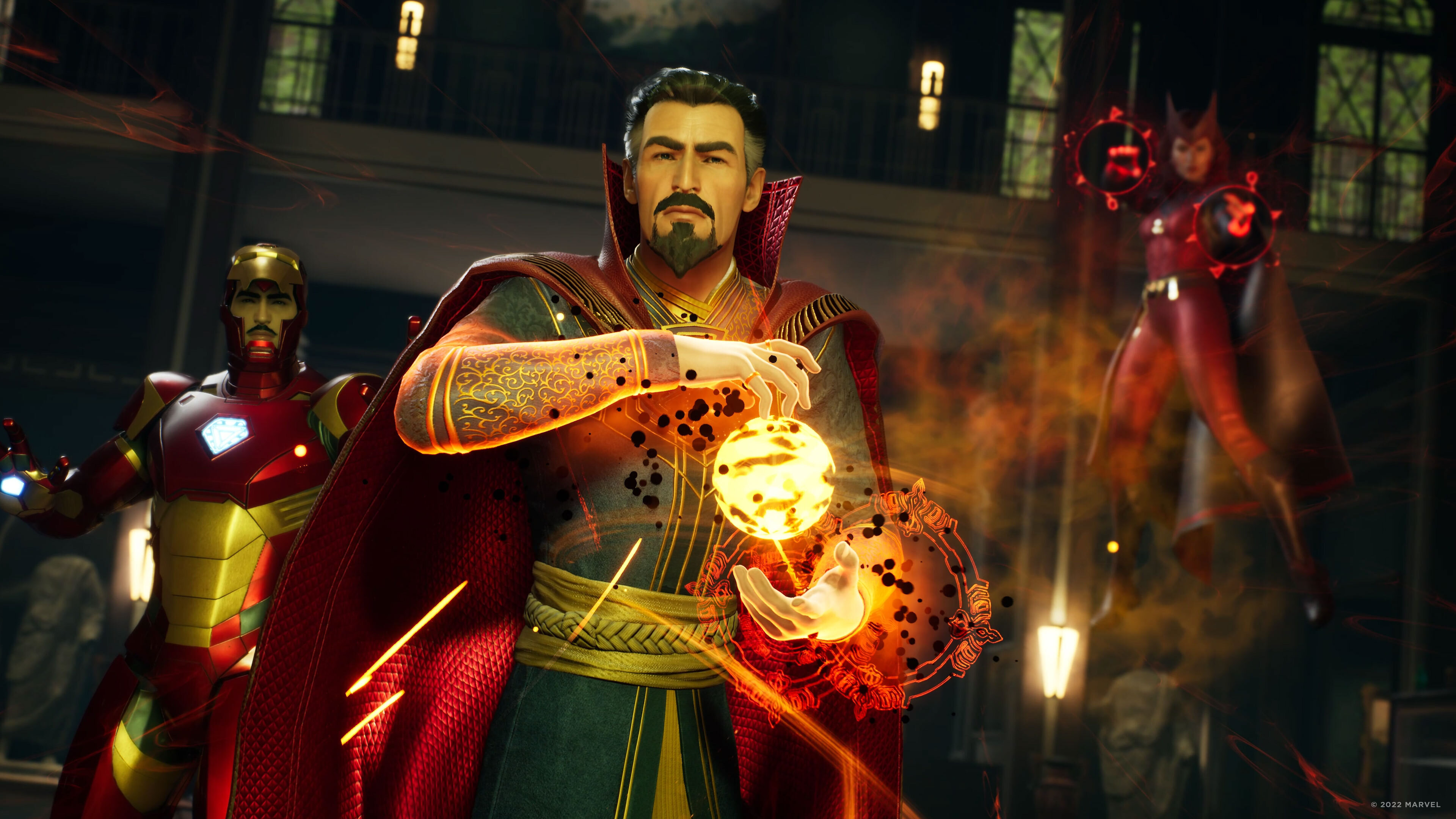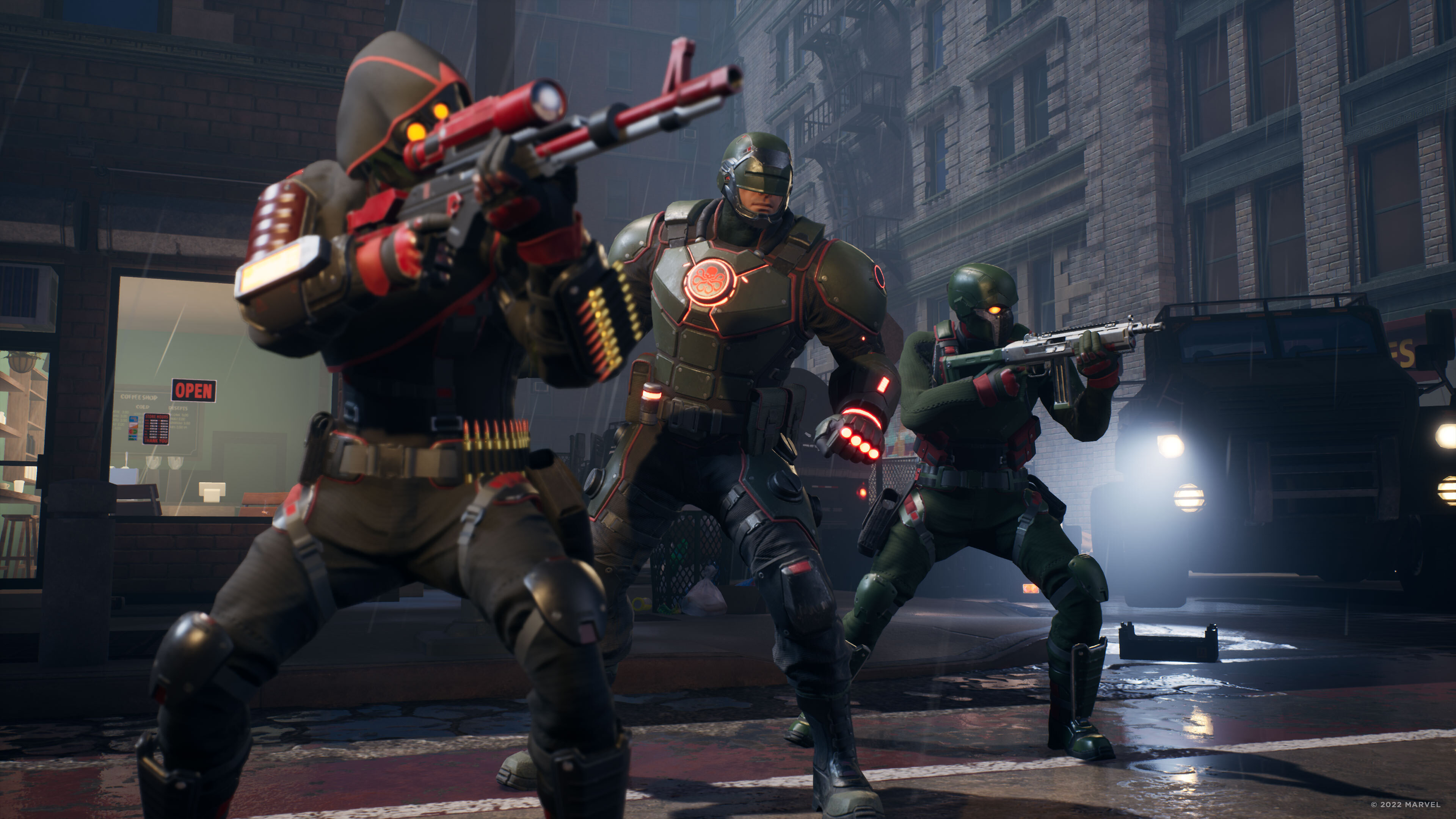
[ad_1]
When the team at Firaxis Games was first approached with the chance to create a new game with Marvel Entertainment, we were obviously super excited! We knew we wanted to create a game featuring tactical combat as we had a lot of experience creating those types of games with XCOM.
However, we quickly discovered that designing a Super Hero game is very different from creating a game about soldiers combating an alien invasion. Today, I’m excited to talk to PlayStation players about our journey to design a brand-new heroic combat experience, why we landed on using cards to represent hero abilities, and how that system works in Marvel’s Midnight Suns.

The theory behind cards
To understand why we use cards, it’s important to break down what makes a tactics game fun in the first place. All tactics games are essentially puzzles, and our job as designers is to find the right balance between that puzzle being too easy and obvious, or nearly impossible and insanely complex. Our goal is to find the sweet spot where the answer isn’t immediately obvious, but the player understands the mechanics and tools to manipulate the game and reach the solution. However, over time seasoned players will learn the optimal way to use those tools and quickly overcome any obstacle. That’s where randomness comes in.
Randomization is an important design element in tactics games, as it offers a way to make the game unpredictable even when a player has mastered the core mechanics. It requires players to constantly adapt to new situations and keeps the puzzle fresh and surprising. And it’s how you end up with those amazing moments in XCOM, like hitting a clutch 25% shot… but also how you end up missing those 95% point-blank rounds!

Another critical element of tactics games is fulfilling the player fantasy. In Marvel’s Midnight Suns we have an awesome roster of heroes from across the Marvel Universe, ranging from the cosmic-powered strength of Captain Marvel and brilliant mind of Tony Stark to the mystic arts of Doctor Strange and vampire-hunting prowess of Blade. Our early prototypes put these characters into XCOM-style combat with elements like percentage hit chance and cover – And while the mechanics worked fine, the game didn’t feel right. These are Super Heroes, after all! Iron Man doesn’t miss shots with his Repulsor Blasts, and Captain Marvel isn’t going to take cover for protection when things heat up.
As we removed more of those XCOM elements, particularly the percentage hit chance, the game began to feel more heroic…but the combat puzzle quickly became too simple. It was easy to repeat the same powerful attack with a hero each turn until the mission was over. We needed to reintroduce randomness to keep the combat puzzle engaging while still making you feel like a Super Hero. That’s when we had the idea to represent our hero abilities as cards.
Cards are great because they are commonly used in games and players are familiar with key “mechanics” like a deck, draw, and discard. Drawing a hand of cards each turn gave us the perfect amount of randomness for our combat experience. Our heroes feel super-powered in combat because their abilities never miss and always do exactly what they say, but there is still strategy required to solve the combat puzzle based on which cards are in your hand.
Fight and think like a Super Hero
In Marvel’s Midnight Suns, every hero has a unique set of abilities which you use to form a deck of 8 cards. When heroes are brought into combat, their decks are shuffled together and at the beginning of each turn you draw up to a hand of 6 cards. During your turn, you have three Card Plays that represent how many times you can use your abilities, along with two Redraws to swap out abilities you don’t want to use. You can also Move a hero of your choice anywhere you want once per turn.

Regarding the abilities themselves, we separate them into three categories: Attacks, Skills, and Heroics. Attack cards are used primarily to deal damage. Some Attacks have Knockback which forcefully repositions an enemy by throwing them back in a targeted direction – You can deal additional damage by throwing them back into objects, other enemies, or even your allied heroes!
Skill cards are used for support, often providing a variety of benefits to the player or debuffing the enemy. While these cards don’t deal damage, they can be used to draw cards, heal characters, grant positive status effects, and much more.
Heroic cards are incredibly powerful abilities which deal significantly more damage or provide stronger effects on the battlefield. Marvel fans will be delighted to see many iconic hero abilities represented with these cards. Heroic cards require a resource called Heroism, which is generated by playing Attack or Skill cards. Heroism is also required to use objects on the battlefield in Environment Attacks which don’t require a Card Play to use. If you’ve got the Heroism, you can knock down light poles, explode barrels…even pick up a stack of newspapers and smack your foes in the face, all without spending a single Card Play.
Combat in Marvel’s Midnight Suns is uniquely accessible and easy to pick up and play. There is no movement grid or cover system, and heroes will automatically reposition to reach their targets. Playing abilities is as simple as selecting an ability card from your hand, selecting the target enemy or area, and that’s it – There goes Captain America sprinting across the battlefield to knock out a Hydra goon!
After mastering the basic rules, combat can also be surprisingly deep and complex. There are so many factors which adjust the tactical puzzle on every mission, turn, and action.
- What abilities do I have in my hand?
- What heroes are on this mission, and how do their abilities interact?
- Which enemies are the biggest threats? Are there dangerous villains to handle?
- Should I spend my Heroism on a Heroic ability, or utilize the environment?
- Can I use Knockback abilities and the terrain to maximize damage output?
And if that isn’t enough, we also have eight difficulty options for you to pit your tactical brilliance against. Are you just looking to get a great supernatural Marvel story? Pick the Story difficulty. But if you’re looking to agonize over every single decision? Ultimate III will be the way to go.
I can’t wait to see how you solve the tactical combat puzzle once Marvel’s Midnight Suns is out on PlayStation 5 on December 2, 2022!
[ad_2]





